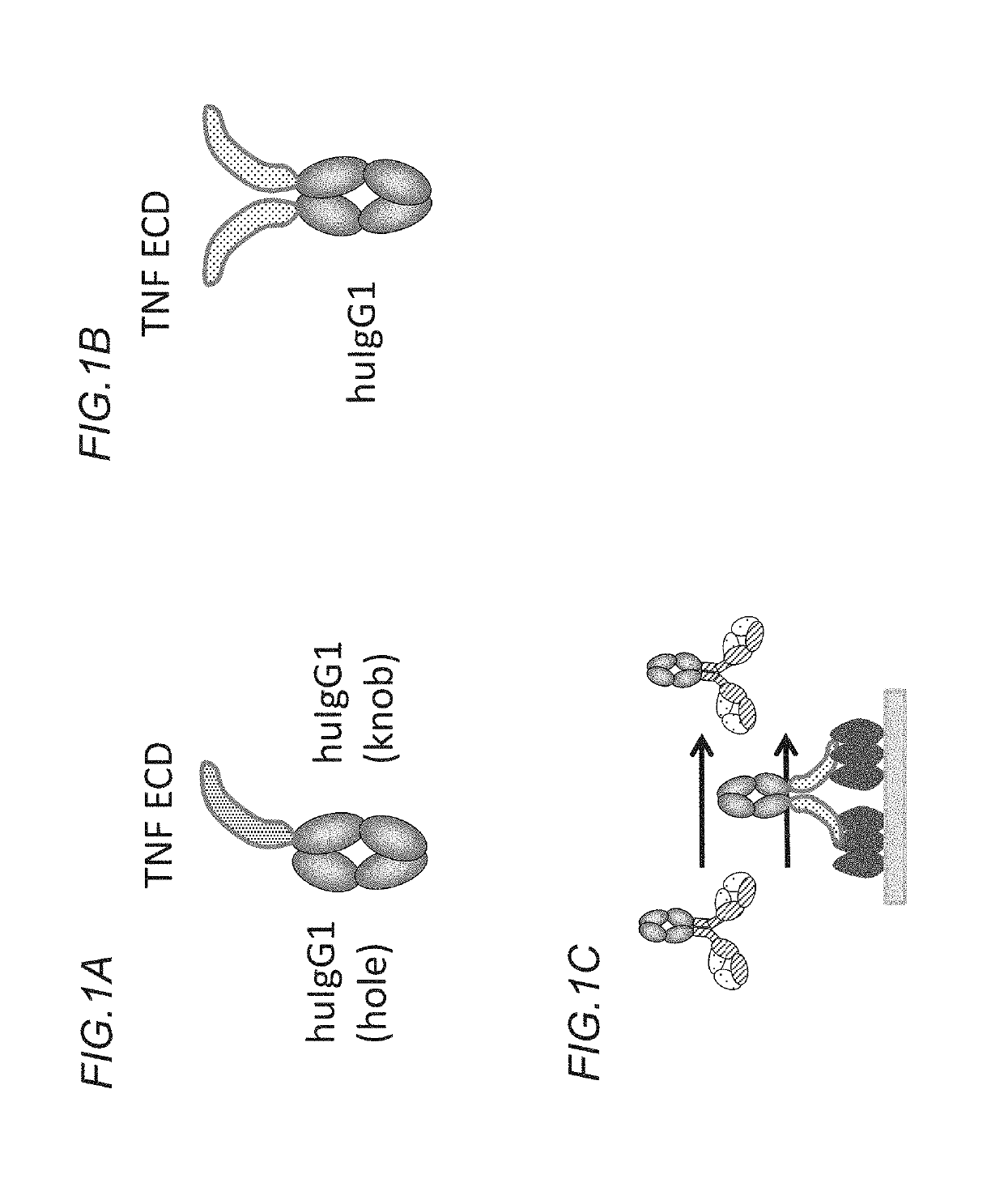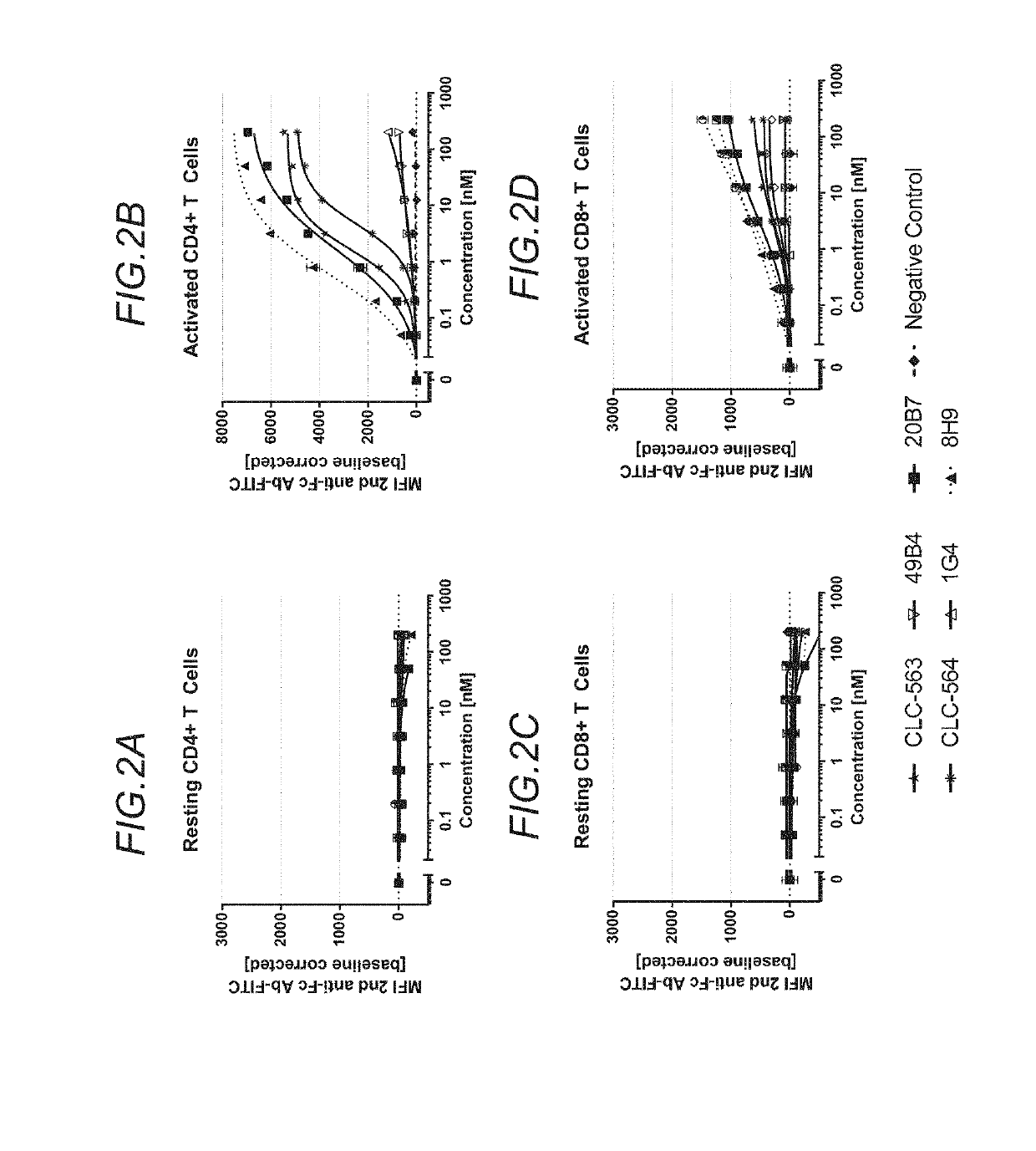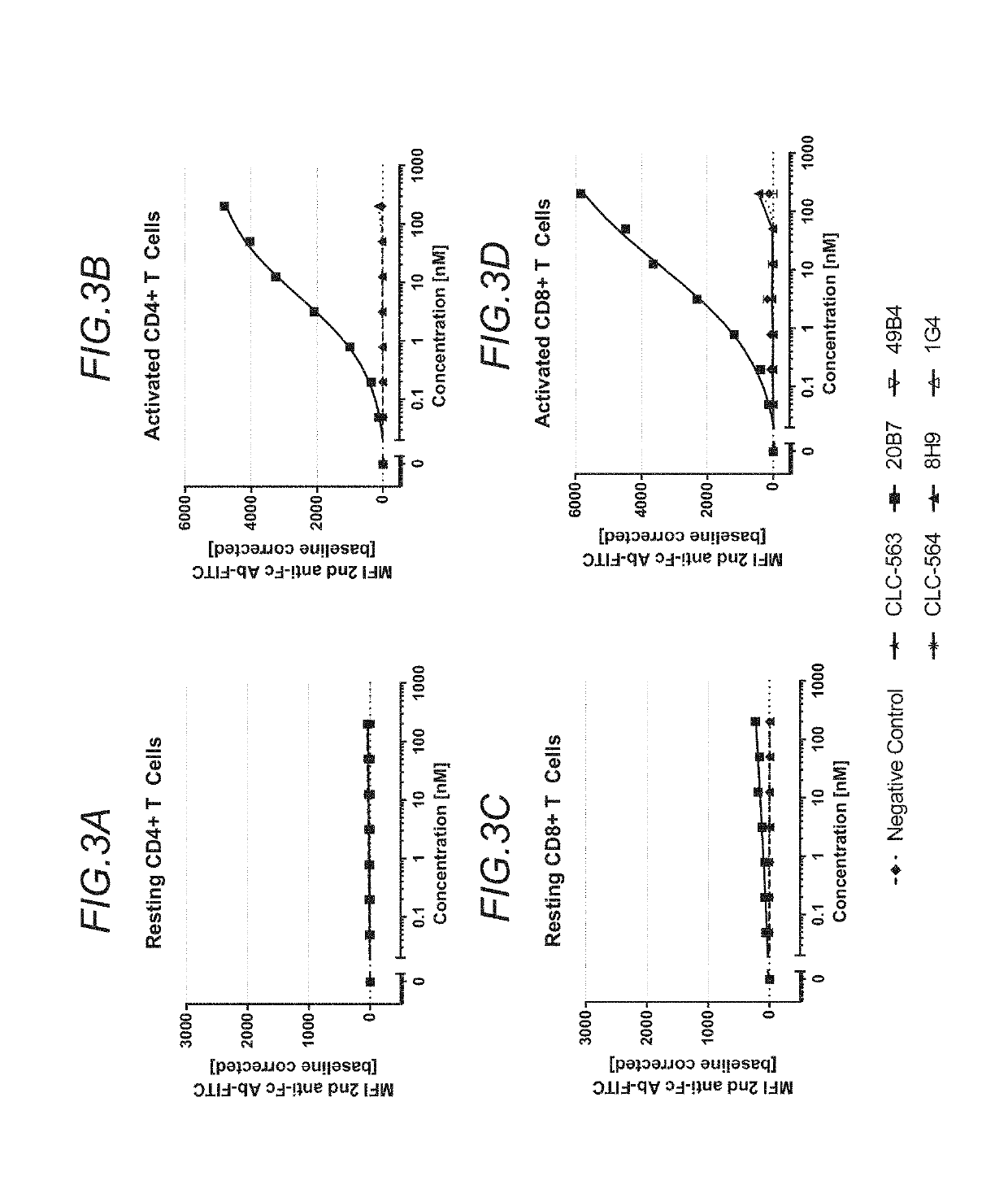Bispecific antibodies with tetravalency for a costimulatory TNF receptor
a costimulatory tnf receptor and bispecific antibody technology, applied in the field of bispecific antigen binding molecules, can solve the problems of increasing complexity of inter- and intracellular signaling mechanisms, and achieve the effect of reducing the complexity of the signaling mechanism
- Summary
- Abstract
- Description
- Claims
- Application Information
AI Technical Summary
Benefits of technology
Problems solved by technology
Method used
Image
Examples
example 1
Generation of Ox40 Antibodies and Tool Binders
1.1 Preparation, Purification and Characterization of Antigens and Screening Tools for the Generation of Novel OX40 Binders by Phage Display
[0629]DNA sequences encoding the ectodomains of human, mouse or cynomolgus OX40 (Table 1) were subcloned in frame with the human IgG1 heavy chain CH2 and CH3 domains on the knob (Merchant et al., 1998). An AcTEV protease cleavage site was introduced between an antigen ectodomain and the Fc of human IgG1. An Avi tag for directed biotinylation was introduced at the C-terminus of the antigen-Fc knob. Combination of the antigen-Fc knob chain containing the S354C / T366W mutations, with a Fc hole chain containing the Y349C / T366S / L368A / Y407V mutations allows generation of a heterodimer which includes a single copy of the OX40 ectodomain containing chain, thus creating a monomeric form of Fc-linked antigen (FIG. 1A). Table 1 shows the amino acid sequences of the various OX40 ectodomains. Table 2 the cDNA and ...
example 2
Characterization of Anti-OX40 Antibodies
2.1 Binding on Human OX40
2.1.1 Surface Plasmon Resonance (Avidity+Affinity)
[0654]Binding of phage-derived OX40-specific antibodies to the recombinant OX40 Fc(kih) was assessed by surface plasmon resonance (SPR). All SPR experiments were performed on a Biacore T200 at 25° C. with HBS-EP as running buffer (0.01 M HEPES pH 7.4, 0.15 M NaCl, 3 mM EDTA, 0.005% Surfactant P20, Biacore, Freiburg / Germany).
[0655]In the same experiment, the species selectivity and the avidity of the interaction between the phage display derived anti-OX40 clones 8H9, 49B4, 1G4, 20B7, CLC-563, CLC-564 and 17A9 (all human IgG1 P329GLALA), and recombinant OX40 (human, cyno and murine) was determined. Biotinylated human, cynomolgus and murine OX40 Fc(kih) were directly coupled to different flow cells of a streptavidin (SA) sensor chip. Immobilization levels up to 600 resonance units (RU) were used.
[0656]Phage display derived anti-OX40 human IgG1 P329GLALA antibodies were pas...
example 3
Functional Properties of Anti-Human OX40 Binding Clones
3.1 HeLa Cells Expressing Human OX40 and Reporter Gene NF-κB-Luciferase
[0701]Agonstic binding of OX40 to its ligand induces downstream signaling via activation of nuclear factor kappa B (NFκB) (A. D. Weinberg et al., J. Leukoc. Biol. 2004, 75(6), 962-972). The recombinant reporter cell line HeLa_hOx40_NFkB_Luc1 was generated to express human Ox40 on its surface. Additionally, it harbors a reporter plasmid containing the luciferase gene under the control of an NFκB-sensitive enhancer segment. Ox40 triggering induces dose-dependent activation of NFκB, which translocates in the nucleus, where it binds on the NFκB sensitive enhancer of the reporter plasmid to increase expression of the luciferase protein. Luciferase catalyzes luciferin-oxidation resulting in oxyluciferin which emits light. This can be quantified by a luminometer. The scope of one experiment was to test the capacity of the various anti-Ox40 binders in a P329GLALA huI...
PUM
| Property | Measurement | Unit |
|---|---|---|
| Fraction | aaaaa | aaaaa |
| Fraction | aaaaa | aaaaa |
| Fraction | aaaaa | aaaaa |
Abstract
Description
Claims
Application Information
 Login to View More
Login to View More - R&D
- Intellectual Property
- Life Sciences
- Materials
- Tech Scout
- Unparalleled Data Quality
- Higher Quality Content
- 60% Fewer Hallucinations
Browse by: Latest US Patents, China's latest patents, Technical Efficacy Thesaurus, Application Domain, Technology Topic, Popular Technical Reports.
© 2025 PatSnap. All rights reserved.Legal|Privacy policy|Modern Slavery Act Transparency Statement|Sitemap|About US| Contact US: help@patsnap.com



